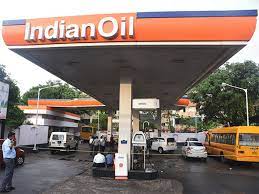Indian Oil Corporation (IOC) is making waves in the fuel industry once again, this time setting its sights on the adrenaline-pumping world of Formula One (F1) motor racing. Within the next three months, IOC’s Paradip refinery in Odisha will commence production of the high-octane petrol used in F1 racing cars, marking a significant milestone for the company.
As the country’s largest oil firm with approximately 40% of the fuel market share, IOC will become the first Indian company and one of the few globally to manufacture fuel for F1 racing. IOC’s chairman, Shrikant Madhav Vaidya, announced that the company aims to obtain certification for its Formula 1 fuel within three months. Once certified, IOC will compete with global majors like Shell to supply fuel to F1 teams.
F1 fuel is characterized by its high-octane content and stringent quality standards regulated by the Federation Internationale de l’Automobile (FIA). IOC’s foray into F1 fuel production follows its success in producing highly specialized ‘reference’ petrol and diesel for automobile testing, a feat achieved in October last year.
IOC’s Paradip and Panipat refineries are already producing reference-grade petrol and diesel, eliminating the need for imported fuels in automotive testing. This move has significantly reduced costs for Indian automobile manufacturers.
In addition to reference fuels, IOC offers a range of premium fuels, including 95-Octane XP95 petrol, 100-Octane XP100 petrol for luxury vehicles, and XtraGreen diesel, known for its enhanced fuel economy and reduced emissions.
The company’s expansion into racing fuels includes ‘Storm’ petrol for motorcycle racing, which will be the official fuel partner for the Federation Internationale De Motocyclisme (FIM) Asia Road Racing Championship. IOC aims to produce Category-1 fuel within two months and Formula 1 fuel within three months, signaling its commitment to innovation and excellence.
With plans to manufacture sustainable fuels in line with F1’s evolving regulations, IOC is poised to make a significant impact in the competitive world of motor racing fuels. As Vaidya aptly puts it, “Unless we go to F1, the journey is not complete.”



